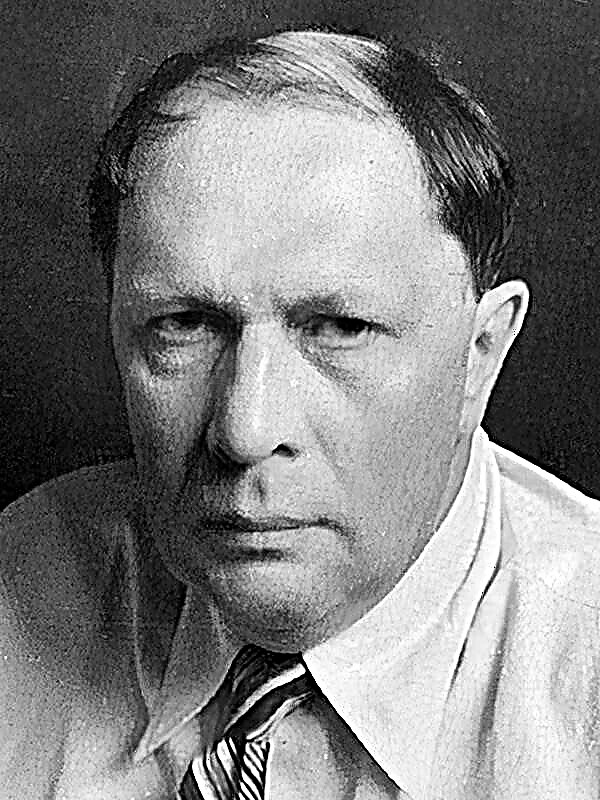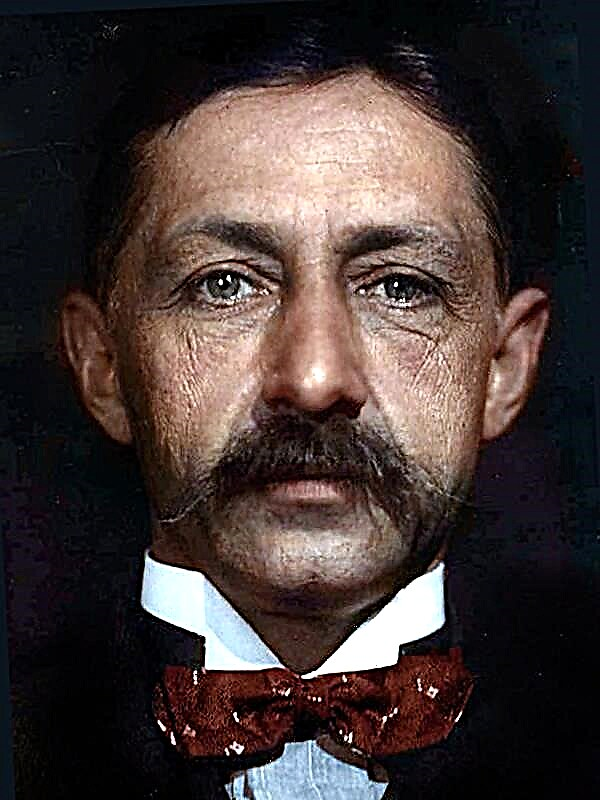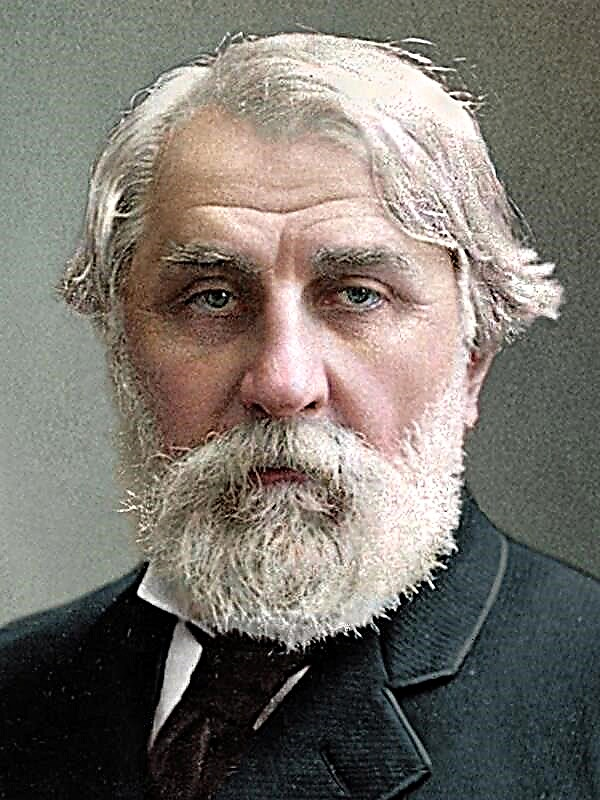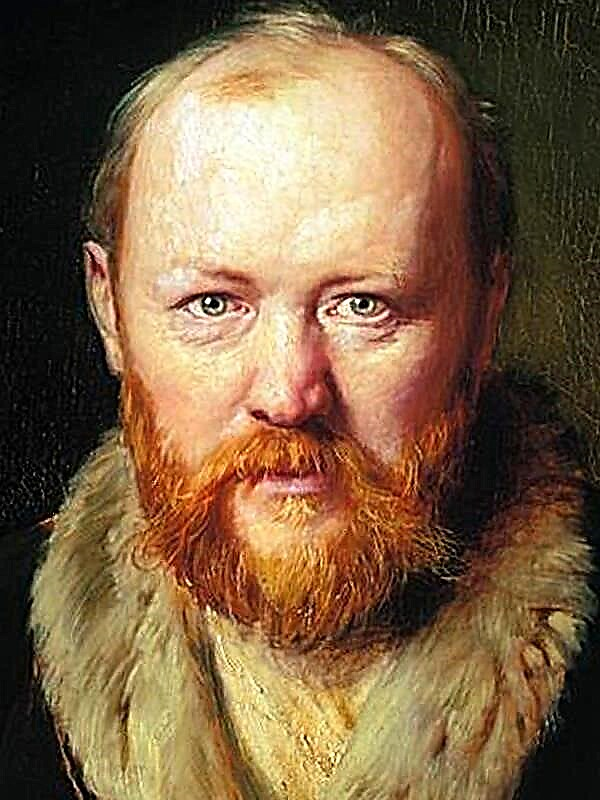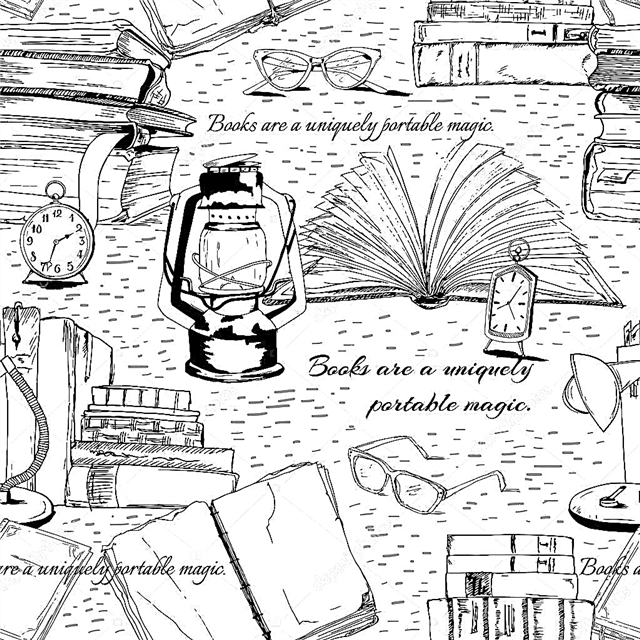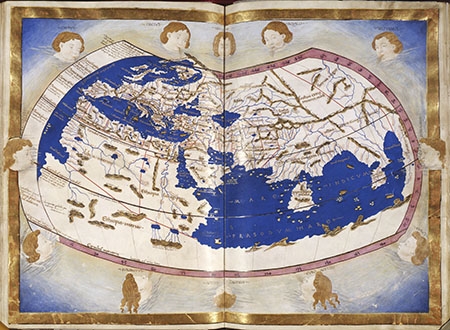In the introduction to the “History of the Sevrambs,” the author notes that this book is not a figment of rich imagination, but the truthful notes of Captain Silenus. This is confirmed not only by the testimony of a doctor to whom the captain, while dying, passed on the main work of his life, but also the stories of those who were somehow connected with a mysterious ship called the Golden Dragon ...
In 1655, Captain Syden sent on the "Golden Dragon" to East India, finally being able to realize his long-standing dream of traveling. At first, the weather favors swimming, but halfway to Batavia a terrible storm falls on the ship. Only thanks to the skill of the Golden Dragon team escaped imminent death. However, India cannot be reached: the strongest wind carries the ship to an unknown continent, off the coast of which the ship is stranded.
People on the ship manage to get out to land. And although the hope that sooner or later it will be possible to get to inhabited lands is small (the Golden Dragon received serious damage), no one despairs. There is enough food, there is fresh water, and the climate seems unusually good.
The need to live in completely new conditions forces the shipwrecked to first of all choose a special military form of government. Siden is elected General, who has already managed to show his courage and leadership ability. Under the captain, there are about three hundred men and seventy women.
Gradually, the life of a small village, called Sydenberg, begins to improve. People build houses, stock up supplies, the blessing in the woods is abundant in game, and in the rivers - fish. But the sudden disappearance of the intelligence bot under the command of Maurice, one of the most experienced sailors, violates the established calm.
After some time, the missing squad returns, but escorted by two strange ships. Frightened residents of Sydenberg begin to prepare for defense. Their fear, however, is in vain: the ships arrived with a peace offer on behalf of the governor of the city of Sporumb. As Maurice explains, the lands southeast of Sydenberg are populated by people who are not inferior in development to the inhabitants of Europe. Maurice’s detachment was received very well by them, and soon, according to local customs, the strangers were to be presented to the ruler of Sevaramba, the country to which Sporambe subordinated. Then Maurice talked about the existence of Sydenberg, and the governor sent his envoy with him, so that he would offer the other people of Syden to take advantage of their hospitality.
Sporumb strikes Syden’s imagination: beautiful streets, large square buildings, beautifully cultivated fields, and most importantly - a high level of culture of the local population. Many disputes (residents of Sporumba) speak European languages, which allows the captain and his people to communicate freely with them. Although Syden is treated with great respect, he and everyone else have to follow local customs. This, however, does not cause protest, because the laws of Sporumb seem fair to them. So, the misunderstanding arising due to the fact that many women from Sydenberg had several husbands: spores, very scrupulous in matters of virtue, suggested that men choose wives (polygamy was by no means reproached) from among the residents of Sporumb
Almost immediately after arrival, Captain Syden enters the temple of the Sun, which is worshiped by local residents, to celebrate one of the country's largest celebrations - the day when many young men and women enter into legal marriage in order to be together all their lives.During the holiday, the captain notes that most of the townspeople, including the governor himself, have one or another physical defect. It turns out that all inferior people from other cities are sent to Sporumb.
The governor, who received Syden very well, announces that all strangers must appear before the ruler of Sevaramba, for which it is necessary to leave immediately. The next day, the captain and his people go on a trip along the river. In the first city, where they stop to rest, they are faced with a striking sight: public punishment of adulterers - criminals who have violated the laws of decency and chastity, which are considered the basis of society.
Gradually, more and more miracles of this country open before the eyes of Captain Syden. So, in one of the cities he is invited to take part in the hunt for outlandish animals and in fishing, which serves residents a considerable entertainment.
Soon the river path ends, and travelers fall into a narrow valley lying between high cliffs. Sermodas, the guide, notes that the capital is a real earthly paradise, but the path there goes through hell. And when the road goes into a narrow tunnel carved into the rock, women panic: they decide that they really fell into the netherworld. It is difficult to calm them down, and Sermodas, saddened by the fact that his joke was so received, claims that at first he will lead only ten people. Nonetheless, the mistake of the women allowed Syden to visit the Governor of Sevaragoundo, the “gate of Sevramba”.
The rise "to heaven" followed shortly after the descent "to hell": after crossing the mountain, Captain Syden with his people is very close to the capital. Here Sermodas shows them the regular army of Sevaramba. The troops, consisting not only of men, but also of women, are armed with the most modern weapons. As explained by Sermodas, many residents of the country visited Europe and Asia, borrowing all the useful innovations and carefully preserving the secret of their homeland so that the vices of the inhabitants of other continents would not penetrate them.
Sevarind is the best city in the country. Its streets are unusually beautiful, square houses - osmosis - are richly decorated, and the Temple of the Sun seems to Syden the most beautiful building in the world. The Viceroy accepts travelers as welcome guests, and, having provided them with everything necessary to settle in a new place, asks only one thing: to unconditionally obey the laws of the country. Life in Sevaramba proceeds easily and calmly: the necessary work for the benefit of society does not burden Syden, and he proceeds to study the language and history of the Sevarambs, starting from their first ruler Sevarias.
Persian Sevarias was a descendant of the Parsi, worshiping the sun and fire. Having received an excellent upbringing, he showed himself to be a wise and fair man even at a very young age. The persecution of enemies forced Sevarias to leave his homeland, and after many misfortunes, he, along with other Parsis, ended up on an unknown continent. Its inhabitants, Prestarambs, like the Parsis, worshiped the Sun as a god. Upon learning of this, Sevarias announced that he had been sent by the great luminary to punish their enemies, thereby gaining extraordinary respect for himself. Enemies, strukarambs, were defeated, and Sevarias was elected leader of all the Prestarambs. The rest of the nations, including the strukaramba, hastened to submit to the "messenger of the Sun."
Having gained power over a large part of the inhabited lands of the continent, Sevarias began to study the mores of the locals who lived as community families, jointly owning all the property. In addition, Sevarias built the temple of the Sun, where he was soon declared vice-king of the country, because, according to him, only the sun was the only ruler of the earth, and he, Sevarias, was only his deputy. Everyone was convinced that he was truly the chosen one of God, and therefore he was very revered and obeyed in everything.
Subsequently, Sevarias (ending “ace” strukaraba added to the names of persons of high rank) showed himself to be a just and wise ruler of a country named in his honor Sevaramba. Sevarias decided to maintain the absence of private property and class division of society. In addition, he introduced the obligation to work, destroying idleness, - the source of many vices. Thus, the causes of strife, wars and other troubles that overshadowed the lives of people were eliminated.
For nearly forty years, Sevarias reigned, after which he transferred his power to another chosen by lot: in the transfer of power by inheritance, the wise ruler saw evil for society. Since then, all the vice-kings of Sevaramba have done everything to increase the welfare of the state, and the people implicitly obeyed them, chosen by providence itself.
The laws by which the Sevarambs lived and live, allow them to be content with all possible benefits. Each person, not having private property, owns nevertheless all the wealth of the country. All that they need, the Sevarambs get from the state warehouses, and it never even occurs to them to profit by dishonest means. Since the whole nation is divided only into private and public persons, anyone can achieve the highest power through good and reasonable deeds.
The population is mainly engaged in construction and agriculture, but those who have the ability to art are given all the opportunities to do what they love since childhood. From the age of seven, the Sevarambs begins to raise the state. The children are inculcated with a desire to work, respect for elders, obedience, virtue. After reaching a certain age, the Sevarambs enter into a legal marriage, considering it their duty to raise “several children of their homeland” and lead a life virtuous and beneficial to society.
A description of the customs of the Sevarambs ends with the notes of Captain Syden, who has lived sixteen years in this amazing country, the laws and customs of which, in the opinion of the author, can serve as a worthy role model.

